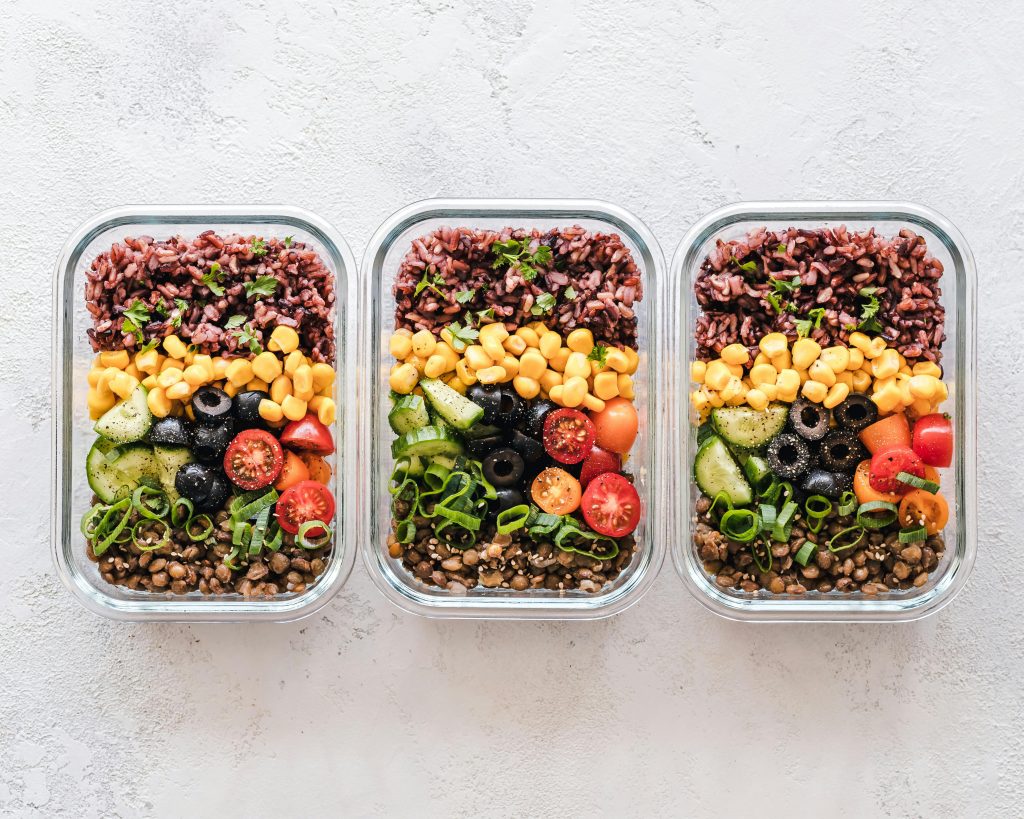Cracking the Code
We live in a culture that often glorifies “busy.” Our calendars are packed, our inboxes overflow, and the mantra of “doing more” seems to echo in every corner of our lives. In this relentless hustle, it’s easy for self-care, particularly when it comes to our weight and overall health, to slide down the priority list. “I’m just too busy,” becomes the default excuse, a seemingly impenetrable shield against making healthier choices. Prioritize the right things, and results will continue.
But let’s be unequivocally clear: being busy doesn’t have to be a barrier to taking care of your weight. In fact, often, it’s not the lack of time that’s the real culprit, but rather a lack of strategic planning, efficient habits, and a fundamental shift in perspective. As an expert in health and well-being, I’ve seen countless individuals, from high-powered executives to busy parents, successfully navigate their weight management goals amidst demanding schedules. Their secret? It’s not about finding more time, but about making the most of the time you have.
This isn’t about adding another overwhelming task to your already overflowing plate. Instead, it’s about weaving mindful and sustainable habits into the fabric of your busy life. It’s about understanding that even small, consistent efforts can yield significant long-term results. So, let’s dismantle the “too busy” myth and explore practical, expert-backed strategies to prioritize your weight without sacrificing your professional or personal commitments.

The Psychology of “Busy” and Weight Neglect:
Before we dive into solutions, it’s crucial to understand why the “busy” excuse is so prevalent. Often, it stems from a combination of factors:
- Perceived Lack of Control: When life feels chaotic and demanding, the idea of adding another “to-do” like meal prepping or exercise can feel overwhelming, leading to a sense of powerlessness.
- Stress and Cortisol: Chronic busyness often equates to chronic stress. Elevated cortisol levels can trigger cravings for high-calorie, comfort foods and promote fat storage, particularly around the abdomen.
- Prioritization Issues: While work and family obligations are undoubtedly important, self-care, including weight management, is often relegated to the bottom of the list, perceived as a luxury rather than a necessity.
- Instant Gratification vs. Long-Term Health: In the face of immediate deadlines and demands, the long-term benefits of healthy eating and exercise can seem distant and less urgent.
- Social Norms: Our society often equates busyness with success and productivity, making it harder to prioritize activities that might be perceived as “less important” in the immediate context.
Recognizing these underlying psychological factors is the first step towards breaking free from the “busy” trap and reclaiming control over your health. Again, all you have to do is prioritize right.

Expert Strategies for Weight Management in a Busy Life:
Now, let’s move on to the actionable strategies that can help you prioritize your weight without adding undue stress to your already packed schedule:
1. Strategic Meal Planning and Preparation: Your Time-Saving Weapon
This is arguably the most impactful strategy for busy individuals. Investing a few hours each week in planning and prepping your meals can save you countless unhealthy impulse decisions and valuable time during the week.
- The Power Hour (or Two): Dedicate a specific time each week (e.g., Sunday afternoon) to plan your meals for the upcoming days. Create a simple menu for breakfasts, lunches, and dinners.
- Batch Cooking Like a Pro: Prepare large quantities of staple ingredients like cooked grains (quinoa, brown rice), roasted vegetables, lean proteins (chicken breast, lentils), and healthy soups or stews. These can be easily portioned and combined for quick meals.
- Smart Shopping: Create a detailed grocery list based on your meal plan to avoid impulse buys and ensure you have all the necessary ingredients on hand. Consider online grocery delivery to save even more time.
- Portion Control is Key: Invest in meal prep containers to portion out your meals accurately. This eliminates guesswork and helps you stay within your calorie goals.
- Healthy Grab-and-Go Options: Stock your fridge and pantry with healthy snacks like fruits, vegetables (pre-cut for convenience), nuts, seeds, yogurt, and hard-boiled eggs for those times when you need a quick and nutritious bite.

2. Time-Efficient Exercise: Quality Over Quantity
Forget the notion that you need to spend hours in the gym to see results. Short, intense bursts of activity can be incredibly effective, especially when time is limited.
- High-Intensity Interval Training (HIIT): These workouts involve short bursts of intense exercise followed by brief recovery periods. They are incredibly time-efficient and can burn a significant number of calories in a short amount of time (e.g., 20-30 minutes).
- Bodyweight Circuits: Utilize exercises like squats, lunges, push-ups, and planks that require no equipment and can be done anywhere, anytime. A quick 15-20 minute circuit can be surprisingly effective.
- Integrate Movement into Your Day: Look for opportunities to move throughout your day. Take the stairs instead of the elevator, walk or bike for short errands, and stand up and stretch regularly if you have a desk job.
- Schedule Your Workouts Like Meetings: Treat your exercise sessions as non-negotiable appointments in your calendar. This increases the likelihood of you sticking to them.
- Find Activities You Enjoy: Exercise shouldn’t feel like a chore. Experiment with different activities like dancing, hiking, swimming, or yoga to find something you genuinely enjoy, making it easier to stay consistent. When you find “your” exercise, you will prioritize it no matter what.
- More on exercise motivation here: https://www.bariradka.com/2024/10/20/10-times-i-was-too-busy-to-exercise/

3. Mindful Eating: Tuning In Amidst the Chaos
Busy schedules often lead to rushed meals eaten in front of screens or on the go. Cultivating mindful eating habits can help you reconnect with your body’s hunger and fullness cues, preventing overeating.
- Slow Down and Savor: Even if you only have 15 minutes for lunch, make a conscious effort to eat slowly, chew your food thoroughly, and savor the flavors.
- Eliminate Distractions: Turn off your phone and computer while eating. Focus solely on your meal.
- Pay Attention to Hunger and Fullness Cues: Before you start eating, ask yourself if you’re truly hungry. During your meal, check in with your body to recognize when you’re satisfied, not overly full.
- Practice Gratitude for Your Food: Taking a moment to appreciate your meal can enhance your awareness and enjoyment of it.
4. Prioritize Sleep: The Unsung Hero of Weight Management
Often overlooked in the pursuit of productivity, adequate sleep is crucial for weight management. Lack of sleep can disrupt hormones that regulate appetite, leading to increased cravings and weight gain.
- Aim for 7-9 Hours of Quality Sleep: Make sleep a non-negotiable part of your routine.
- Establish a Consistent Sleep Schedule: Go to bed and wake up around the same time each day, even on weekends, to regulate your body’s natural sleep-wake cycle.
- Create a Relaxing Bedtime Routine: Wind down before bed with activities like reading, taking a warm bath, or listening to calming music.
- Optimize Your Sleep Environment: Ensure your bedroom is dark, quiet, and cool.

5. Hydration is Your Ally:
Staying adequately hydrated plays a vital role in metabolism, energy levels, and satiety.
- Carry a Water Bottle: Keep a water bottle with you throughout the day as a constant reminder to sip regularly.
- Set Hydration Goals: Aim for a specific amount of water intake each day.
- Infuse Your Water: If plain water feels boring, add slices of fruit, cucumber, or herbs for flavor.
- Be Mindful of Other Beverages: Limit sugary drinks, sodas, and excessive caffeine, which can contribute to weight gain and dehydration.
6. Small, Sustainable Changes: The Power of Consistency
Don’t try to overhaul your entire lifestyle overnight. Focus on making small, sustainable changes that you can realistically maintain in the long run. Prioritize the right things, and you will see results soon.
- Start with One or Two Goals: Choose one or two strategies from the above list that resonate with you and focus on implementing them consistently. Once those become habits, you can gradually add more.
- Be Patient and Kind to Yourself: There will be days when you slip up. Don’t let it derail your progress. Acknowledge it, learn from it, and get back on track with your next meal or workout.
- Celebrate Small Victories: Acknowledge and celebrate your progress, no matter how small it may seem. This will help you stay motivated.
7. Leverage Technology Wisely:
In our tech-driven world, there are numerous tools that can support your weight management journey.
- Meal Planning Apps: These apps can help you create meal plans, generate grocery lists, and track your calorie intake.
- Fitness Trackers and Apps: These can monitor your activity levels, sleep patterns, and even provide guided workouts.
- Online Communities and Support Groups: Connecting with others who have similar goals can provide motivation and accountability.

Reframing “Busy”: It’s About Priorities, Not Just Time
Ultimately, prioritizing your weight when you’re busy isn’t about magically finding more hours in the day. It’s about consciously deciding that your health and well-being are worth the investment of your time and energy. It’s about shifting your mindset from “I don’t have time” to “How can I make time?”
By implementing these expert strategies, you can crack the code of busy living and successfully navigate your weight management journey. Remember, even small, consistent steps taken amidst the whirlwind of life can lead to significant and lasting results. Your health is your greatest asset – make it a priority, no matter how packed your schedule may seem. You deserve to feel your best, both inside and out.